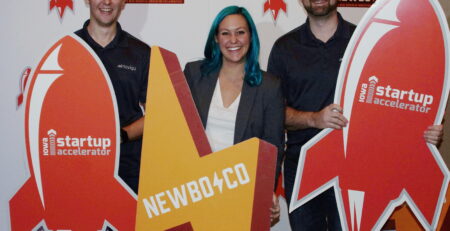A Lesson in Going From Career Woman to Missouri Entrepreneur from M3 Engineering
Imagine you are in a high-level position within your career field. You’ve put in at least 30 years, understand the industry on multiple levels and now, you want to start a business.
Would you take that leap?
Marjorie Melton found the courage to jump and create M3 Engineering in St. Louis, Missouri, in 2009. With the support of resources like T-REX (an incubator that hosts more than200 companies in its eight-floor building) and years of hard work, M3 operates from St. Louis, Chicago and Memphis.
So what made her take that leap with her partners?
“We were all tired of working for other people. We knew we were good at what we did, and we knew we could do it,” says Marjorie.
“Being tired of working for others” resonates with every aspiring or established entrepreneur. What sets Marjorie and M3 apart is that she had the courage—but she also had a plan. The symbiotic relationship between courage and discipline is responsible entrepreneurship and how businesses go from fumbling around to major success.
How did Marjorie do it? What resources did she use? How did she overcome any inherent challenges? Below, Majorie graciously shares the story of M3 Engineering.
MOSourceLink: What was the determining factor that lead you to start your own business after reaching a high-level position in your field?
Marjorie Melton (MM): I had been in consulting for a while. Then I began to work for City of St. Louis as, essentially, the City Engineer . After doing being a consultant and working for the city, knew this was something I could do full-time, as my own business.
MOSourceLink: What is your elevator pitch for M3 Engineering?
MM: M3 Engineering Group, among other things, designs stormwater mitigation master plans and individual projects to make those master plans happen, and then the master plans are used by elected officials or others to prioritize capital improvements in the stormwater realm.
MOSourceLink: What did the journey look like for establishing M3?
MM: We had plenty of challenges. The journey included taking on a partner. In fact, we sat over cocktails one day and talked about M3 becoming a possibility, and we both thought the time was right. The journey included us meeting after work for several months, writing up a business plan, and then taking on a third partner.
After taking on a third partner, we started the business with no money. However, the day we signed our agreement to form a company, we had a contract waiting for us; a very, very small one. My third partner was just about to sign a contract with a company, so he brought the project with him and that was our first.
MOSourceLink: Was funding a challenge and if so, how did you overcome that?
MM: The project was a small project, so it wasn’t enough to pay salaries, but it paid the rent. We got a small SBA loan. We met a guy who managed the SBA small lender process for this region. He helped us to get our first $20,000 loan. It was from a city agency, called the Local Development Agency. With that and the small contract that we had, that was enough to pay rent, buy some equipment and buy materials and things that we need to run.
We also didn’t take salary for the first year at all or even the second. Then by the year three, we started taking 25% of what we thought our salary should be. We just lived off savings. It was a leap of faith for all of us because we had no clue about what was in store for us.
MOSourceLink: What kept you and your team going?
MM: We were all tired of working for other people. We knew we were good at what we did and we knew we could do it.
We had been senior managers for other people’s departments, so the skillset it took to do that were the same skillsets it took to run our own company. We had faith that the contracts were coming because we knew that the Metropolitan Sewer District was going to sign a consent decree any day. That consent decree said they were going to have to spend so many billions of dollars to fix stormwater problems. We wanted to have the company established, have all our certifications in place, so when that consent decree was signed we were ready to compete with projects.
MOSourceLink: How has being in Missouri played a role in the success of M3?
MM: Oh, this is our home. We’re all from St. Louis. I know for us, having this be our anchor has been key because we have relationships with people here. Our company in Chicago does maybe 10% of the volume that we do in St. Louis.
In Chicago, the budget for these types of things is much larger, but because our relationships are St. Louis-based, so the St. Louis branch has grown faster than Chicago.
MOSourceLink: What is your advice for Missouri entrepreneurs?
MM: Do your homework. Know your market and make sure there’s a place for you in that market before you set out. If you know your market and know your place, and know your work, you’ll be successful.
MOSourceLink: What resources would you recommend for entrepreneurs to learn their markets?
MM: The professional organizations that support their industry, whatever that happens to be. For us, it was the Engineer’s Club and the American Council of Consulting Engineers, things like that. Those organizations helped us with our networking efforts. For other people there may be other professional organizations or trade organizations that help them with the networking. But knowing the future of your industry. Knowing, for the next 10 years, what that plan is, what those trends are, that’s helpful to know where you fit in.











Leave a Reply